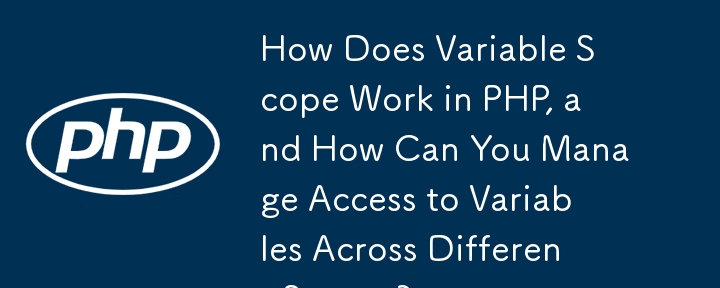

Variable scope refers to the specific sections of code within which a variable is accessible. In PHP, variables can only be accessed within their defined scope. Declaring a variable within a function, for instance, limits its accessibility to the interior of that function.
PHP exclusively employs function scope, where variables defined inside a function are only accessible within it. Variables established outside functions are accessible anywhere outside of those functions, but not within them. This indicates a unique scope within PHP: the global scope. Any variable outside a function is within the global scope.
PHP file boundaries do not influence scope; thus, variables from included files can be accessed similarly to variables in the main file:
$foo = 'bar'; include 'a.php'; echo $foo; // works
Each new function declaration establishes a distinct scope within functions and classes. Hence, variables within nested functions or class methods do not have direct access to variables in their surrounding scopes.
There are three ways to traverse scope boundaries:
1. Passing Variables In and Out:
This involves explicitly passing variables as function arguments and returning values. This ensures clear variable ownership and function functionality.
2. Using Anonymous Functions:
Anonymous functions can inherit variables from their surrounding scopes using the use keyword. However, this differs from accessing the global scope.
3. Global Scope:
Functions can explicitly import variables from the global scope using the global keyword. This is generally discouraged as it leads to potential side effects and tangled code.
The above is the detailed content of How Does Variable Scope Work in PHP, and How Can You Manage Access to Variables Across Different Scopes?. For more information, please follow other related articles on the PHP Chinese website!




